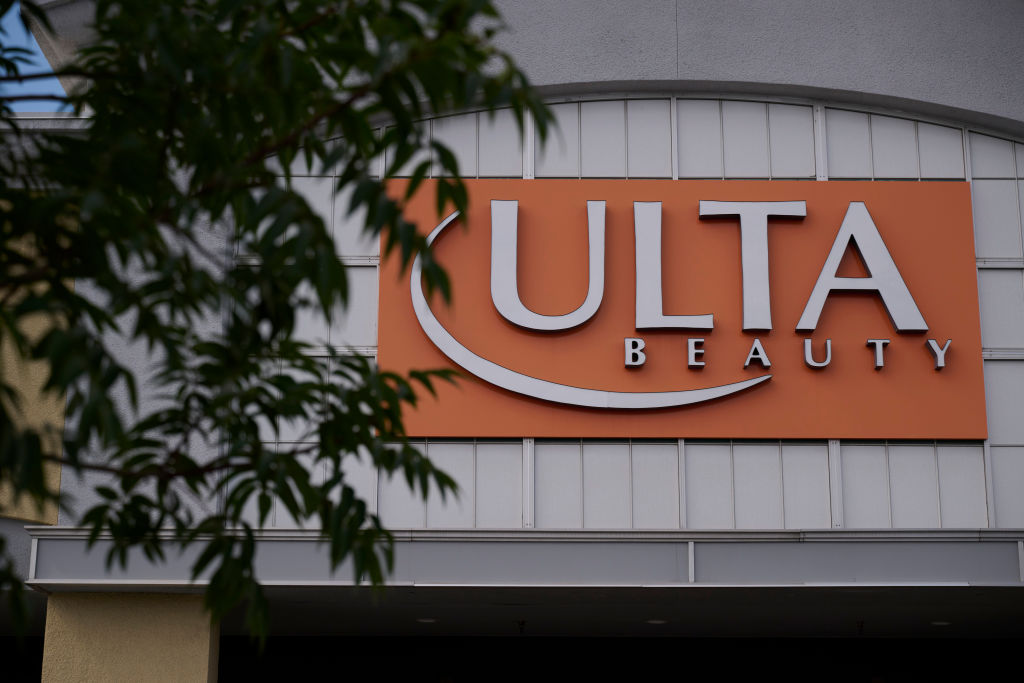Ulta Earnings Beat Expectations With Growth In Major Categories
Ulta Beauty (ULTA) beat on earnings and met revenue expectations for the second quarter, raising its full-year outlook.


Profit and prosper with the best of Kiplinger's advice on investing, taxes, retirement, personal finance and much more. Delivered daily. Enter your email in the box and click Sign Me Up.
You are now subscribed
Your newsletter sign-up was successful
Want to add more newsletters?

Delivered daily
Kiplinger Today
Profit and prosper with the best of Kiplinger's advice on investing, taxes, retirement, personal finance and much more delivered daily. Smart money moves start here.

Sent five days a week
Kiplinger A Step Ahead
Get practical help to make better financial decisions in your everyday life, from spending to savings on top deals.

Delivered daily
Kiplinger Closing Bell
Get today's biggest financial and investing headlines delivered to your inbox every day the U.S. stock market is open.

Sent twice a week
Kiplinger Adviser Intel
Financial pros across the country share best practices and fresh tactics to preserve and grow your wealth.

Delivered weekly
Kiplinger Tax Tips
Trim your federal and state tax bills with practical tax-planning and tax-cutting strategies.

Sent twice a week
Kiplinger Retirement Tips
Your twice-a-week guide to planning and enjoying a financially secure and richly rewarding retirement

Sent bimonthly.
Kiplinger Adviser Angle
Insights for advisers, wealth managers and other financial professionals.

Sent twice a week
Kiplinger Investing Weekly
Your twice-a-week roundup of promising stocks, funds, companies and industries you should consider, ones you should avoid, and why.

Sent weekly for six weeks
Kiplinger Invest for Retirement
Your step-by-step six-part series on how to invest for retirement, from devising a successful strategy to exactly which investments to choose.
Ulta Beauty (ULTA) reported solid results in its second quarter earnings report Thursday, beating expectations, although the market did not have an overly exuberant response.
For the quarter ended July 29, Ulta reported revenue growth of 10.1% to $2.5 billion as its diluted earnings per share (EPS) rose 5.6% to $6.02. The increase in revenue was driven by increased comparable-store sales, which surged 8%, strong new store performance, and growth in other revenue, the company said.
“The Ulta Beauty team delivered another quarter of strong performance, with sales, gross profit, and SG&A expenses all better than our internal expectations,” stated CEO Dave Kimbell about Ulta’s earnings report. “The beauty category has continued to deliver healthy growth, as consumers maintain their post-pandemic routines and expand their definition of beauty.”
From just $107.88 $24.99 for Kiplinger Personal Finance
Become a smarter, better informed investor. Subscribe from just $107.88 $24.99, plus get up to 4 Special Issues

Sign up for Kiplinger’s Free Newsletters
Profit and prosper with the best of expert advice on investing, taxes, retirement, personal finance and more - straight to your e-mail.
Profit and prosper with the best of expert advice - straight to your e-mail.
Even though Ulta beat on earnings, its margins were under pressure in the quarter, including a 110 basis point contraction in its gross margin to 39.3%, which is said was “primarily due to lower merchandise margin, higher inventory shrink, and higher supply chain costs, partially offset by strong growth in other revenue and leverage of store fixed costs.”
The beauty retailer’s stock reacted to the news by falling slightly at the open of the day’s trading session. It was down about 3% by Friday early afternoon.
Shrink, the retail industry’s terminology for theft, has been a major theme this earnings season, especially in the reports of Dick’s Sporting Goods, Target, Dollar Tree, and Foot Locker, as Kiplinger recently reported.
“Inventory shrink continued to be a headwind this quarter. Our efforts to address shrink are having an impact, but the overall environment remains challenging,” Chief Financial Officer Scott Settersten stated on the conference call.
Fortunately, Ulta has been able to navigate the many issues facing the industry and still deliver better-than-expected earnings. As a result, Ulta raised its full-year outlook for 2023. It now expects revenue in the range of $11.05 billion to $11.15 billion, comparable-store sales growth of 4.5% to 5.5%, an operating margin in the range of 14.6% to 14.8%, and diluted EPS of $25.10 to $25.60.
“Our updated outlook reflects our strong first half performance while continuing to consider risks and uncertainties that could impact demand in the second half of the year, including rising consumer debt levels and the expected resumption of student loan repayments,” Settersten stated.
“As we look to the future, we are focused on capitalizing on the growth opportunities in the beauty category and executing our strategic framework to deliver long-term sustainable growth for all our stakeholders,” Settersten concluded.
Related Content
Profit and prosper with the best of Kiplinger's advice on investing, taxes, retirement, personal finance and much more. Delivered daily. Enter your email in the box and click Sign Me Up.

Joey Solitro is a freelance financial journalist at Kiplinger with more than a decade of experience. A longtime equity analyst, Joey has covered a range of industries for media outlets including The Motley Fool, Seeking Alpha, Market Realist, and TipRanks. Joey holds a bachelor's degree in business administration.
-
 Betting on Super Bowl 2026? New IRS Tax Changes Could Cost You
Betting on Super Bowl 2026? New IRS Tax Changes Could Cost YouTaxable Income When Super Bowl LX hype fades, some fans may be surprised to learn that sports betting tax rules have shifted.
-
 How Much It Costs to Host a Super Bowl Party in 2026
How Much It Costs to Host a Super Bowl Party in 2026Hosting a Super Bowl party in 2026 could cost you. Here's a breakdown of food, drink and entertainment costs — plus ways to save.
-
 3 Reasons to Use a 5-Year CD As You Approach Retirement
3 Reasons to Use a 5-Year CD As You Approach RetirementA five-year CD can help you reach other milestones as you approach retirement.